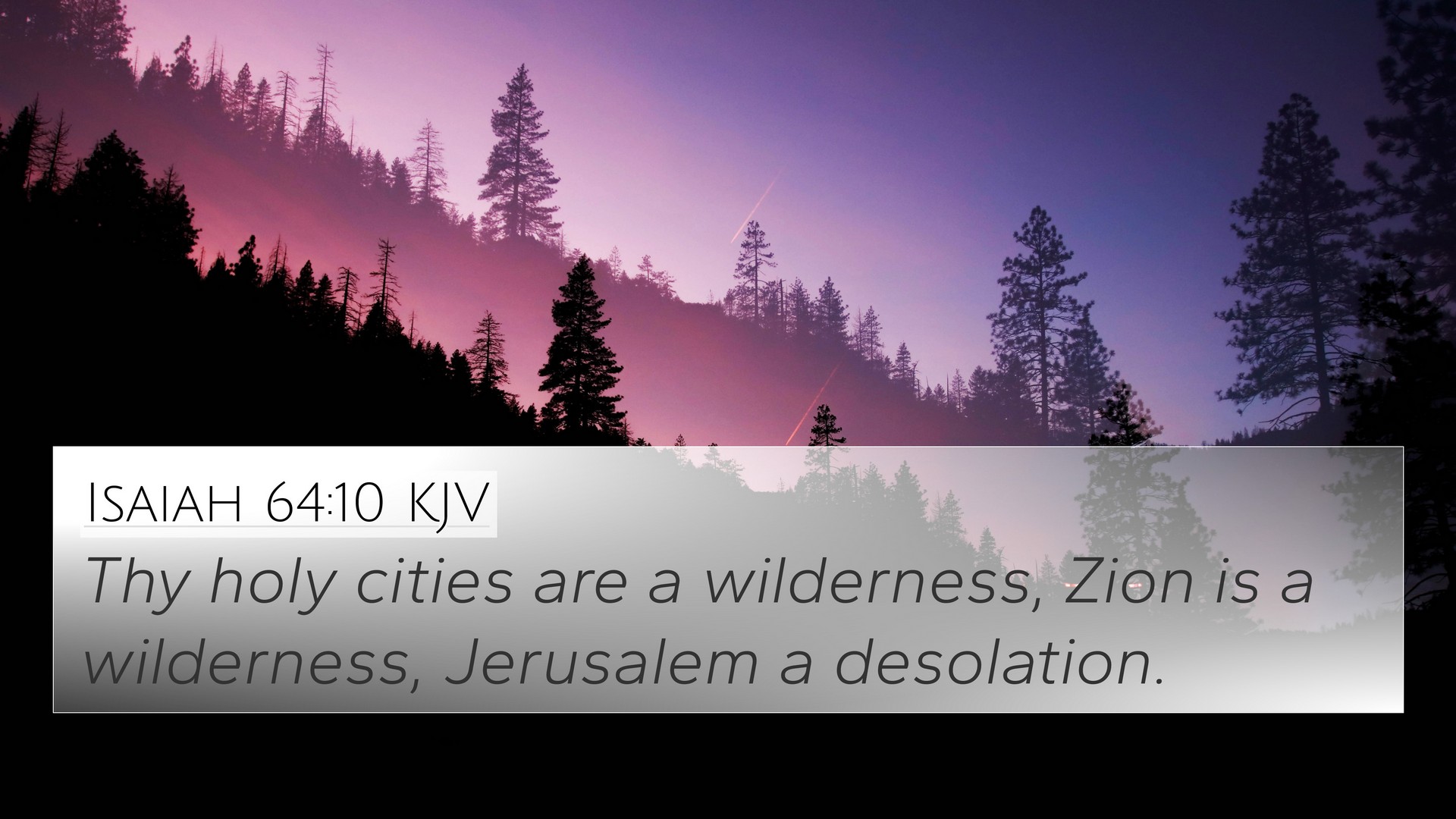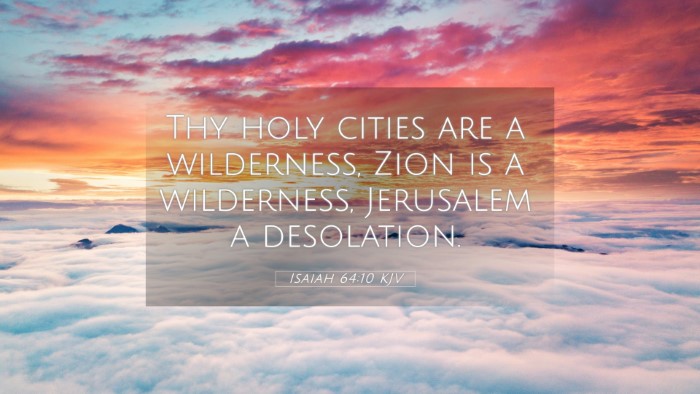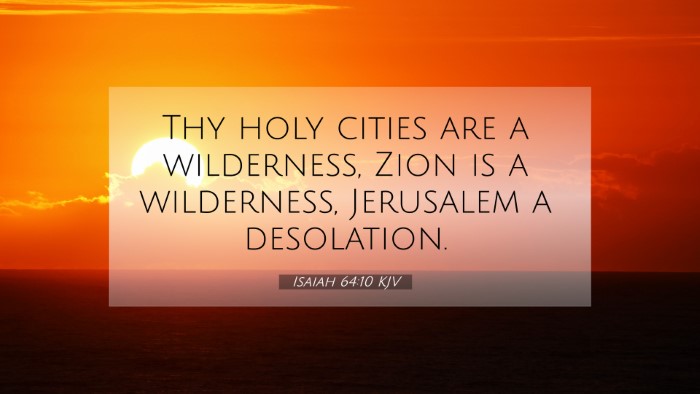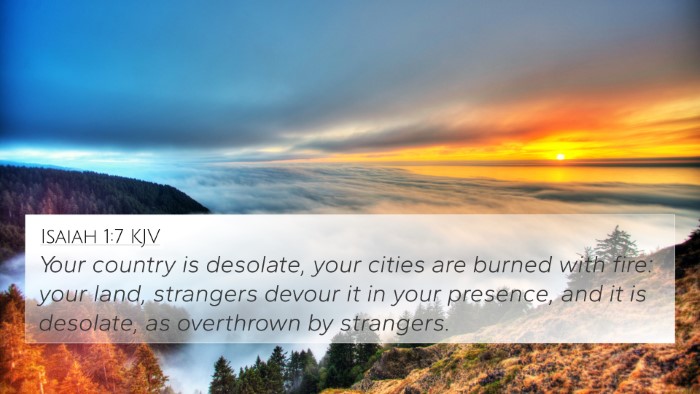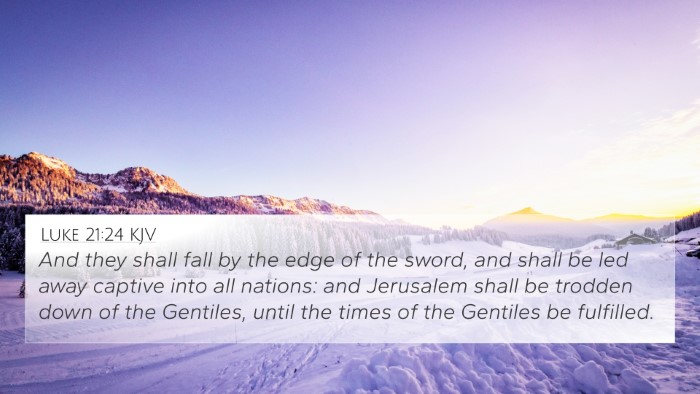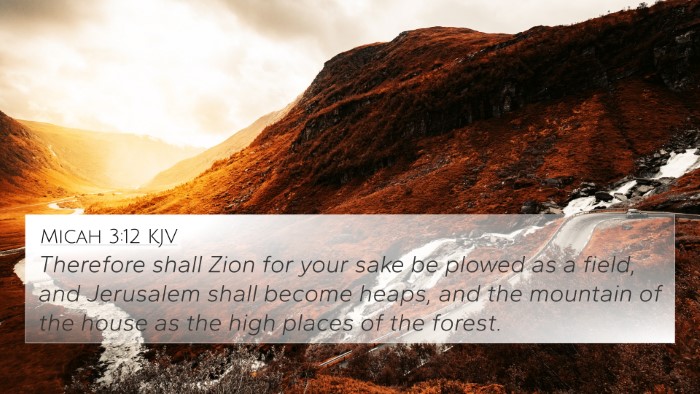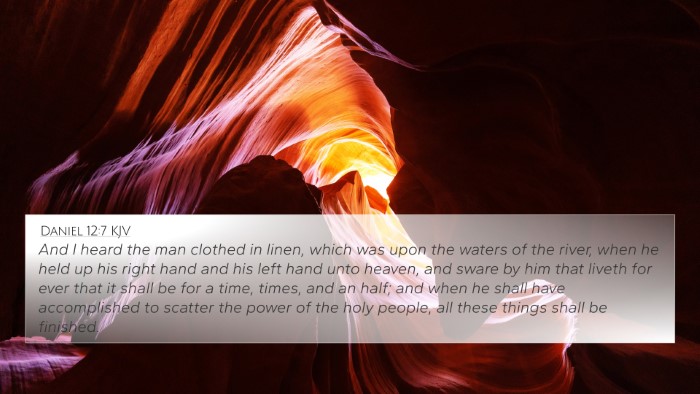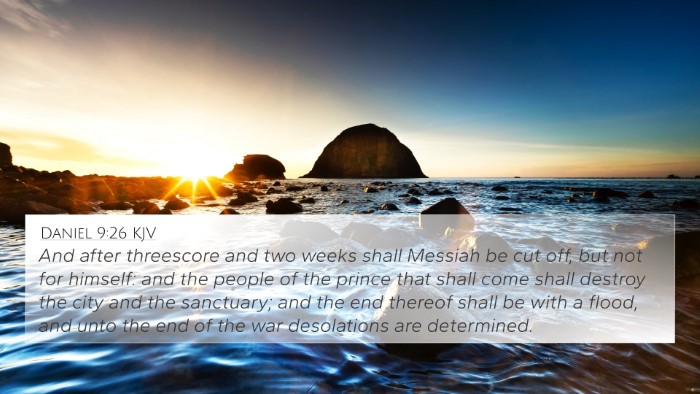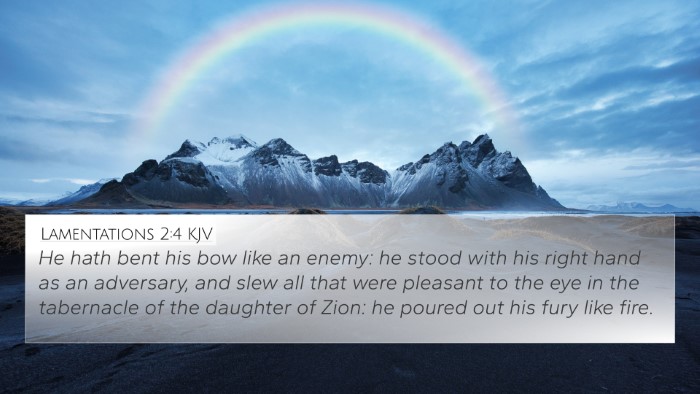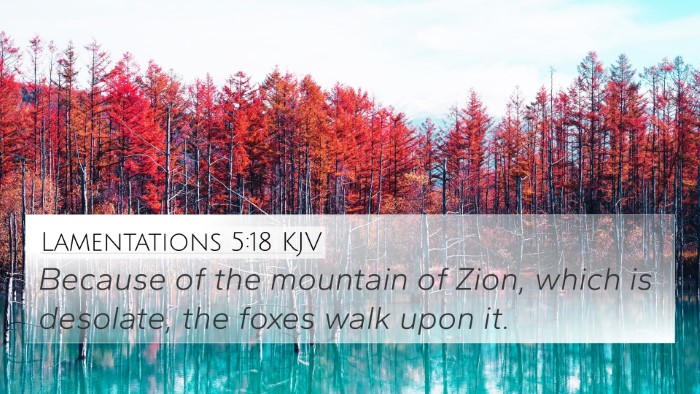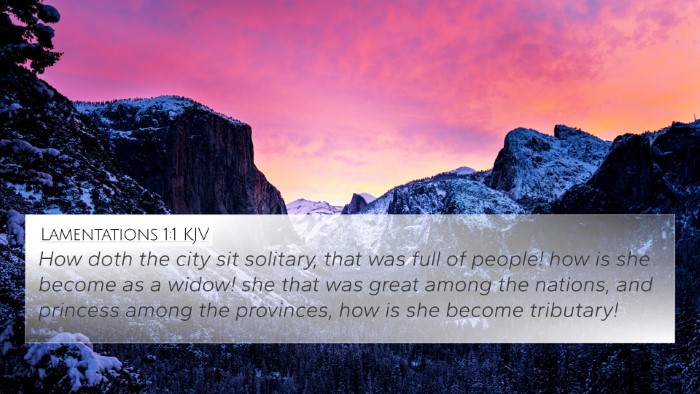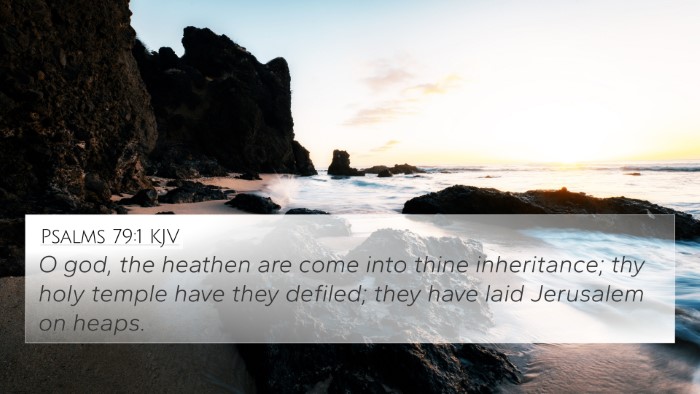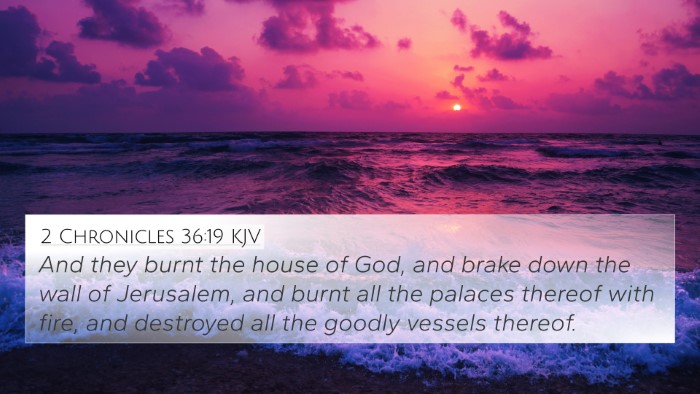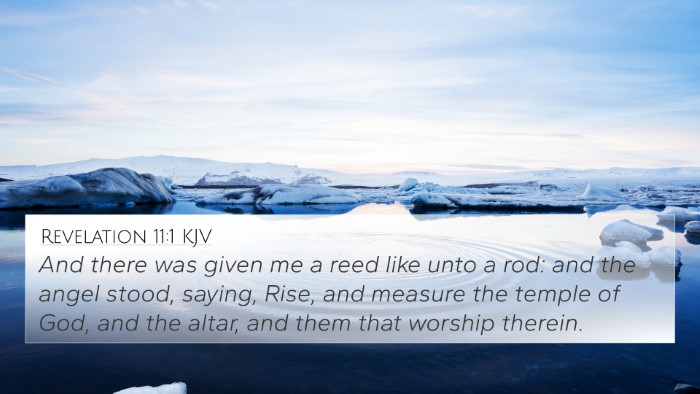Understanding Isaiah 64:10
The verse Isaiah 64:10 states: "Thy holy cities are a wilderness, Zion is a wilderness, Jerusalem a desolation." This verse captures a profound lament over the devastation of Jerusalem and the temple, both of which held significant religious and cultural importance to the Jewish people.
Contextual Background
Isaiah's writings often reflect on the state of Israel and its relationship with God, especially in times of crisis. This particular verse emphasizes the sorrow and suffering experienced due to divine judgment. It is important to understand the historical context of this verse to grasp its full meaning.
Commentary Insights
Matthew Henry's Commentary
Matthew Henry points out that this lamentation reflects the desolation that sin has brought upon the holy cities. He emphasizes that the city of Zion, once a place of glory, now lies in ruins as a result of the people's disobedience to God's commands.
Albert Barnes' Commentary
Albert Barnes highlights the spiritual significance of this desolation. He notes that the wilderness signifies not only physical desolation but also spiritual emptiness. The verse serves as a call to recognize the consequences of turning away from God.
Adam Clarke's Commentary
Adam Clarke elaborates on the notion of God's displeasure with His people, suggesting that these reflections in the verse exemplify the dire need for repentance and restoration. Clarke urges readers to see this desolation as a consequence that could lead to renewal if the people seek God's forgiveness.
Bible Cross References
- Isaiah 1:7 - “Your country is desolate, your cities are burned with fire...” - A parallel that illustrates the ruins and desolation.
- Lamentations 1:1 - “How doth the city sit solitary...” - Expresses the sorrow of a ruined city.
- Psalms 79:1 - “O God, the heathen are come into thine inheritance; thy holy temple have they defiled...” - Referring to the desecration of holy places.
- Ezekiel 21:2 - “Son of man, set thy face toward Jerusalem, and drop thy word toward the holy places...” - A call to recognize Jerusalem's significance.
- Micah 3:12 - “Therefore shall Zion for your sake be plowed as a field...” - Another prophetic lament about desolation.
- Jeremiah 9:11 - “And I will make Jerusalem heaps, and a den of dragons...” - Similar prophetic imagery of desolation.
- Matthew 23:37 - “O Jerusalem, Jerusalem, thou that killest the prophets...” - Jesus's lament over Jerusalem ties back to its historical significance.
Thematic Connections
Isaiah 64:10 provides thematic connections to the broader narrative of sin, judgment, and eventual restoration. Key themes include:
- Desolation and Restoration: The verse calls attention to the consequences of collective disobedience while hinting at the possibility of redemption.
- The Role of Prophets: It serves as a reminder of the messages delivered by prophets throughout the scriptures regarding the need for repentance.
- Divine Judgment: The verse is indicative of God's justice and holiness in response to human actions.
How to Use Cross-References in Bible Study
For those looking to deepen their understanding, the following methods can enhance your study:
- Bible Concordance: Utilize a concordance to find related scriptures that echo similar themes to Isaiah 64:10.
- Bible Reference Resources: Refer to commentaries and study guides that detail thematic links.
- Cross-reference Bible Study: Identify key phrases and words within the scripture to uncover connections to other verses.
Conclusion
Isaiah 64:10 serves as a poignant reminder of the consequences of sin and the importance of seeking God. The desolation symbolized in this verse reflects not just the physical ruins of Jerusalem, but also the spiritual void that can result from turning away from God. By utilizing cross-referencing tools, readers can uncover deeper insights and thematic connections that resonate throughout the Bible, enriching their understanding of Scripture and its application in today’s world.
